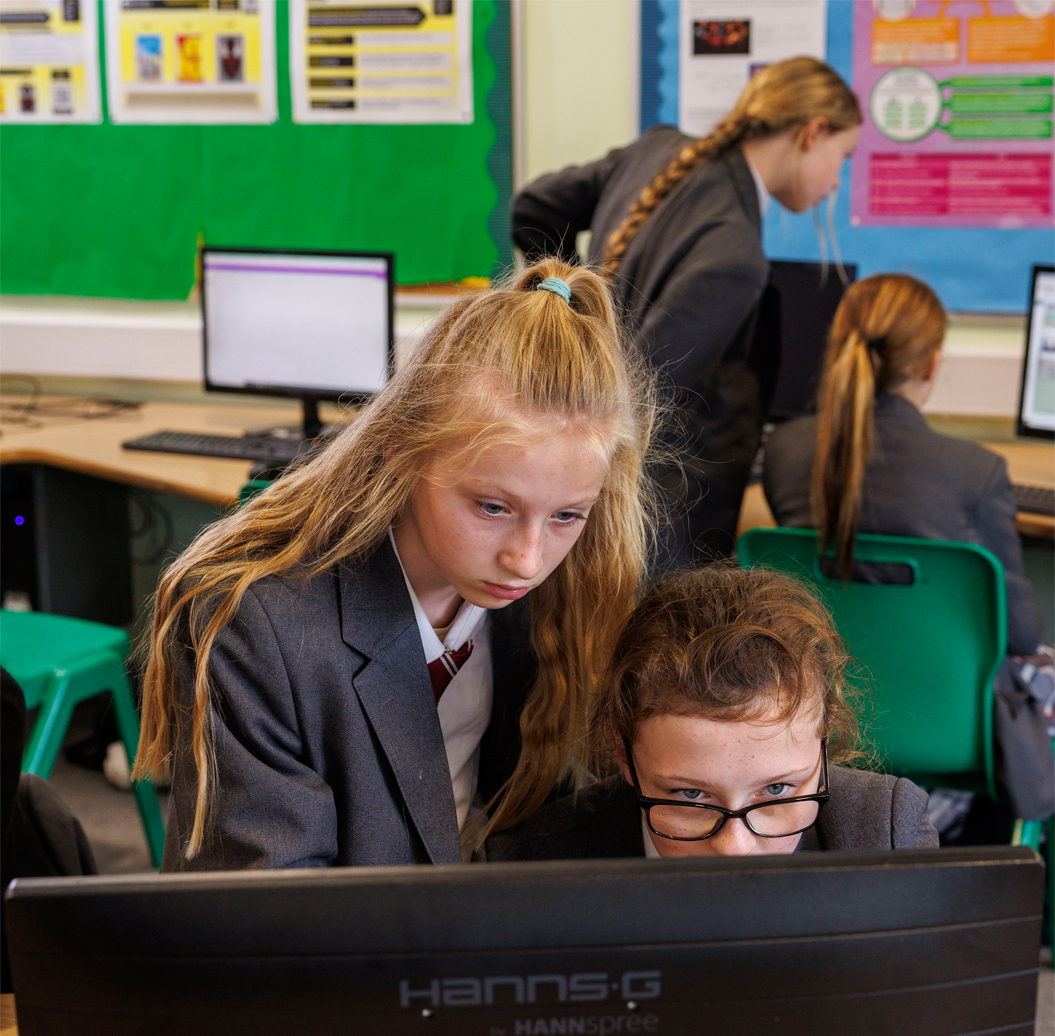
E-Safety
There are a number of resources available that provide guidance on how to help you understand the risks children and young people may face online and how to keep your child safe online.
The NSPCC has advice and guidance on how to talk to your child about online safety; set up parental controls; sexting, online games and video apps at https://www.nspcc.org.uk/keeping-children-safe/online-safety/.
Internet Matters also have online resources and advice to support families at this time and have created a dedicated space to provide expert advice, resources and tools to make the best use of technology during this period at https://www.internetmatters.org/

At The Oakwood Academy, we work to provide high quality guidance for students and their families in relation to the dangers of the online digital world. We also provide guidance and support to help stay safe and avoid these risks and dangers.
In this section, you will find some links to high quality websites and resources to help you at home, as well as information and fact sheets that we have sources to help you read and discuss. Please take some time to look at these websites and resources, we really do feel that they can help keep you and your child safer online.
Safer Internet Day
Safer Internet Day will be on the 6th February 2024
An Internet we trust: exploring reliability in the online world.
This year in the UK, Safer Internet Day explores reliability online. The Internet has an amazing range of information and opportunities online, but how do we separate fact from fiction?
Safer Internet Day will be celebrated globally with the slogan: Together for a better Internet.
For resources and helpful hints and tips how to keep your child safe online, click the link below:
E-Safety in School
As part of the ICT curriculum, students in Key Stage 3 learn about what information should not be shared in a public domain. As well as this, students are educated about Internet etiquette and guidelines that should be adhered to on social networking sites. PSHE is also a key area where students are educated about E-Safety as the local police community support officer leads a presentation on E-safety, the dangers associated with Internet browsing and the consequences of inappropriate behaviour online. Key Stage 4 students also lead whole school assemblies on E-Safety and recognise the importance of privacy settings to ensure important information cannot be accessed by unknown individuals.
Creative Commons
Creative Commons helps you share your knowledge and creativity with the world. Creative Commons develops, supports, and stewards legal and technical infrastructure that maximizes digital creativity, sharing, and innovation.
For more information, please click here to access the Creative Commons website
Social Networking
Social networking sites such as Facebook and Twitter continue to grow in terms of its popularity especially with children, some as young as 7 or 8 years old. Please click on the links below which aim to provide support regarding a range of key topics in relation to social networking.
Laws about online behaviour [PDF]
Top E-Safety Tips For Parents [PDF]
Leaflet giving advice about the safe use of Social Networking sites [PDF]
Facebook Checklist to promote online safety [PDF]
Privacy settings on Social Networking sites [PDF]
Video chats and webcams [PDF]
TikTok guide [PDF]
Top Tips for Parents and Carers
- Ensure the computer is kept in an area of the house, where it is easier to monitor what young people are accessing online.
- Make the most of Internet filtering software and use your web browser’s controls to enable security on different websites.
- Inform children not to share their personal information online.
- Create a "code of conduct" policy where young people are involved in creating rules which must be abided by when using the Internet at home.
- Be online together! Browsing the Internet with your child and being involved in their ‘online world’ will promote online safety.
Top Tips for Students
- Do not post any personal information online including your phone number, address, passwords or your school.
- SPEAK UP! If you viewed something online that made you anxious, unsafe or uncomfortable, please speak to an adult that you trust.
- If you do not know someone, why are they "your online friend" or "follower"?
- Privacy settings should always be kept to a maximum. Use the search engines on social networking websites to find out how to do this.
- Think carefully when "posting" or "sharing" a photo online. Remember, once a photo is posted online, people will be able to share or download the photo.
Websites and Phone Numbers
Websites
- www.ceop.gov.uk
- www.childnet.com
- www.digizen.org
- www.getnetwise.org
- www.ikeepsafe.org
- www.kidsmart.org.uk
- www.saferinternet.org.uk
- www.thinkyouknow.co.uk
Phone Numbers
- Childline – 0800 1111
- StopitNow – 0800 1000900

